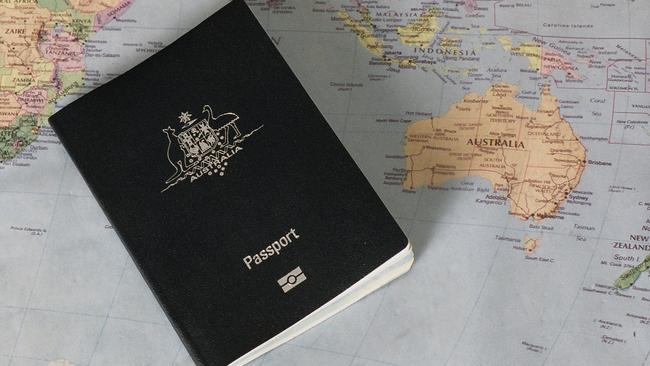Integration core in new multicultural policy
Australia’s national identity will be redefined in a new multicultural policy that says English language is ‘critical’.

Australia’s national identity will be redefined along fundamental principles of integration, citizenship and unity in a pointed shift away from welfare entitlement, in the first multicultural statement by a federal government to also recognise the impact of terrorism on the nation’s social fabric.
In a landmark departure from the 2011 statement delivered by then-Labor prime minister Julia Gillard, the Turnbull government has included for the first time a list of individual freedoms, including freedom of speech, as core Australian values. The statement, released to The Australian ahead of its launch today, is a rejection of multiculturalism as a vehicle for grievance and identity politics.
The government has dropped past emphasis on equitable access to welfare and services for new migrants, and instead promotes values of opportunity, self-reliance and aspiration.
In an implicit reference to the controversial provisions of section 18C of the Racial Discrimination Act, it has moved away from Labor’s past reference to the use of the “full force of the law” while denouncing racism and discrimination, and promoting mutual respect.
A keystone of the document is the inclusion of white Australia — British and Irish settlers — in a broadening of the definition of multicultural Australia to beyond ethnic minorities and indigenous people. Introducing “integration” as the core principle over ethnic segregation to guide government policy, the statement signals a deliberate shift away from the emphasis placed on services articulated by Labor.
A premium has now been placed on citizenship, with a strengthened obligation to demonstrate allegiance to Australia and English as the national language as “critical” features of ethnic integration.
The chairman of the Australian Multicultural Council, Sev Ozdowski, said the document marked a profound change and returned the underlying principles to those established under the Hawke government, when the definition of multiculturalism was an inclusive policy. “I think it is an important move … it takes multiculturalism away from identity politics … it makes it a policy for all of us,” he told The Australian.

The Assistant Minister for Social Services and Multicultural Affairs, Zed Seselja, said it was a document that stamped the Coalition government’s view of multicultural Australia, with the substantive difference between it and previous government statements being the introduction of a core principle of integration. “I think a focus on common values was critical, and a focus on unity and citizenship, rather than an emphasis to services and welfare, which is not the main game,” he said. “It is about all of us, whether we arrived last week or whether our ancestors have been here for hundreds or thousands of years.”
Terrorism and border protection have been recognised for the first time as a threat to social cohesion, with an unambiguous repudiation of behaviour that “undermines Australian values”.
“Underpinning a diverse and harmonious Australia is the security of our nation,” the statement says. “The Australian government places the highest priority on the safety and security of all Australians.
“Recent terrorist attacks around the world have justifiably caused concern in the Australian community. The government responds to these threats by continuing to invest in counter-terrorism, strong borders and strong national security.
“This helps to ensure that Australia remains an open, inclusive, free and safe society. In the face of these threats, however, we do not compromise on our shared values and national unity.”
The document infers reciprocal rights and obligations, claiming that “regardless of cultural background, birthplace or religion, everyone in Australia or coming to Australia has a responsibility to engage with and seek to understand each other, and reject any form of racism or violent extremism”.
“We take responsibility for fulfilling our civic duties,’’ it says. “Practices and behaviours that undermine our values have no place in Australia.”
The inclusion of a set of “freedoms” fundamental to Australian values marks a further divergence from previous statements. “Our commitment to freedom is fundamental,” it says. “We support freedom of thought, speech, religion, enterprise and association.”
The statement is the first since the Gillard government’s 2011 document, which focused on strengthening access and equity policies to “ensure that government programs and services are responsive to the needs of Australia’s culturally and linguistically diverse communities while responding to expressions of intolerance and discrimination with strength and, where necessary, with the force of the law”.
Mr Ozdowski said the document reflected a national policy for all Australians. “It brings back those dimensions established by Hawke and Keating with a focus on multiculturalism for all Australians … not a policy statement on welfare or for particular ethnic groups, or religions or refugees,” he said, adding that the use of the word integration did not reflect a US policy of assimilation but recognised people must accept Australian values while bringing new ideas and connections.
Senator Seselja said the government had included national security to address “the elephant in the room” and it reflected a need to promote social cohesion.
Malcolm Turnbull said that during a time of increased anxiety over terrorism, it was important to reaffirm what should be Australian values.
“We are defined not by race, religion or culture, but by shared values of freedom, democracy, the rule of law and equality of opportunity,’’ he said.






To join the conversation, please log in. Don't have an account? Register
Join the conversation, you are commenting as Logout